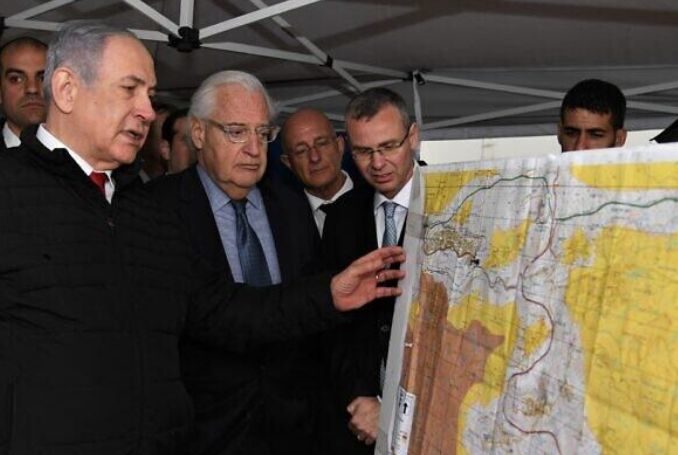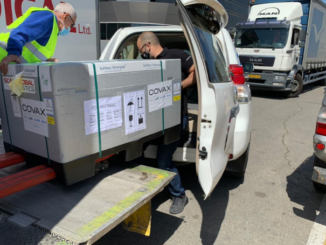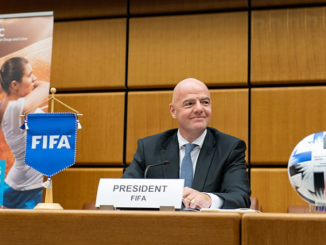
By Ramona Wadi
US Ambassador to Israel David Friedman is reeking of fake accomplishments. The “conflict”, he has claimed, will be over with the normalisation agreements which Arab countries are seeking with Israel.
Israel Hayom’s report is quite telling in several respects, notably the irrelevance of Palestinians as constructed by US-Israeli scheming, and to which the UN has no objection. Indeed, where is the so-called international opposition to the “deal of the century” at this point, if there ever was any?
Normalizing relations with Israel is “the beginning of an end,” Friedman declared. From the US foreign policy view, Palestinians have already disappeared from the equation, since “peace” depends on Arab states’ overt diplomatic relations with Israel. The Palestinian leadership, Friedman stated, needs “to join the 21st Century. They are on the wrong side of history at the moment.” His insufferable smugness comes at the expense of the exploitation of oppressed people.
If the Palestinian Authority is on the wrong side of history, it is because it has facilitated the current diplomatic equivalence in terms of colonial expansion, between the US deal of the century and the two-state compromise. Joining the 21st century is an extension of the modernization paradigm which Zionism employed in the early years of colonization; it has nothing to do with the PA’s leadership or lack thereof, the latter to the great detriment of the Palestinian people.
While Israel found allies to promote its fake entitlement over Palestinian territory, Palestinians had their narratives overwritten by the international community. The PA took up the task eagerly, acquiescing in constructing the Palestinian predicament as a humanitarian issue to be patched up by interminable international aid.
It posed no criticism of the UN’s exploitation of the Palestinian people’s colonized lives and found no contradiction in the international abuse of Palestinian narratives and history in return for symbolic gestures, such as the flying of the Palestinian flag or Nakba exhibitions at UN headquarters.
Not even the hypocrisy of creating a new narrative out of the UN’s 1947 Partition Plan as the “International Day of Solidarity with the Palestinian People” attracted the slightest opposition from the PA. On the contrary, remembering the Palestinian people became an international commemoration which Palestinian leaders upheld, a grave, political offense which is tantamount to an admission that, without the international community, the PA is at a loss when it comes to defining Palestinians within a political context.
It is of little wonder that Israel has pulled off both recent normalization agreements and the forthcoming annexation of Palestinian land as confirmed recently by Friedman when Palestinian history and narratives are being used only to validate international designs on Palestine.
With no context to its statement, WAFA news agency has recently declared that the “Palestinian position” will only be broadcast on its channel. It’s a rational choice to preside over the political blunders that have cost the Palestinian people so much, particularly in terms of forced displacement and colonial expansion.
Perhaps the PA can also hold itself accountable on its media channels for the refusal to politicize Palestinian narratives? For all the damage that the Palestinian people have suffered, a comprehensive approach would require the PA to be analyzed also as an extension of Israeli and international impositions, and as an entity that is non-representative of the Palestinian people and their wholly legitimate rights.
– Ramona Wadi is a staff writer for Middle East Monitor, where this article was originally published. She contributed this article to the Palestine Chronicle.







